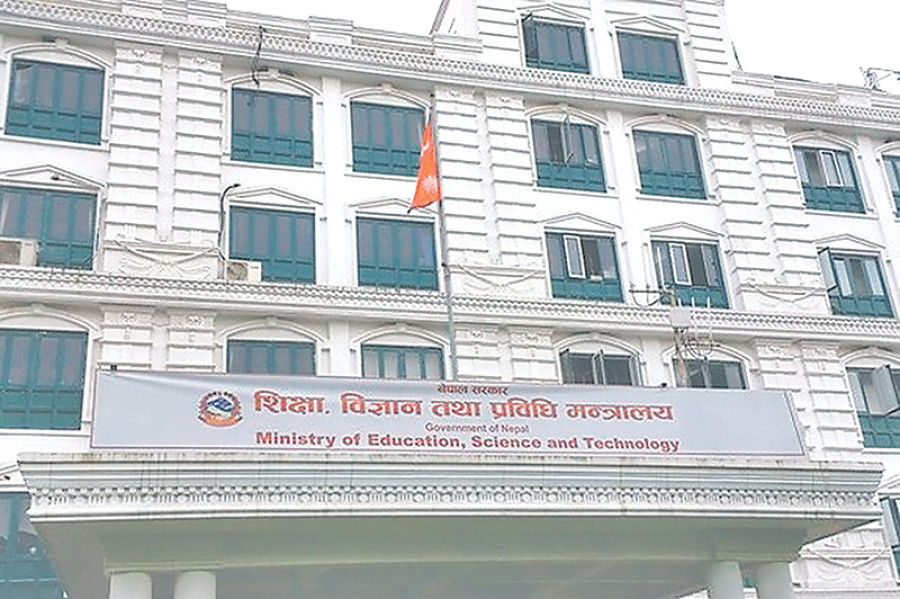Valley
Ministry asks staff to not partake in programmes without consent
Two months after issuing a stern code of conduct for employees regarding their social media and mobile phone use, the Ministry of Education, Science and Technology has directed its staff not to participate in any programme by non-government agencies without permission from their respective departments.
Binod Ghimire
Two months after issuing a stern code of conduct for employees regarding their social media and mobile phone use, the Ministry of Education, Science and Technology has directed its staff not to participate in any programme by non-government agencies without permission from their respective departments.
A circular has been issued to eight departments under the ministry, entrusting them with the task of making sure the staff under the respective departments don’t attend programmes by international and national non-government organisations without prior notice.
The restrictions are applicable to both the domestic and international programmes.
The decision to this effect was made, according to the ministry, after finding that a number of officials were participating in such events “using their personal access”.
The officials, without consultation, were found speaking on behalf of their departments at these events, according to the ministry.
“Those making such remarks, which is in violation of the civil servant code of conduct, should take the responsibility,” reads the circular. “Those not following the directives will be liable of departmental actions.”
Through the circular, the education secretary has asked department heads not to entertain any invitation from such organisations which invite individual staff instead of looking for the institutional representation.
If there are institutional invitations, the directive states that the head of the respective department recommend a suitable candidate for the events.
A senior official at the ministry said it was necessary to abide by the circular as many officials were found making comments and even giving commitments in such programmes without bringing their departments to notice.
The ministry in November last year had come up with the Social Media and Mobile Phone Use Directive, putting restrictions on its officials from making comments related to their jobs and governments. The directive was
part of an attempt to prevent the publication of the government’s decisions before they are fully endorsed, and to avert negative comments on the government activities.
Like the social media directive, the new circular is also applicable to nearly 500,000 workers, including school and university teachers, both from private and public institutions across the country.




 9.7°C Kathmandu
9.7°C Kathmandu














